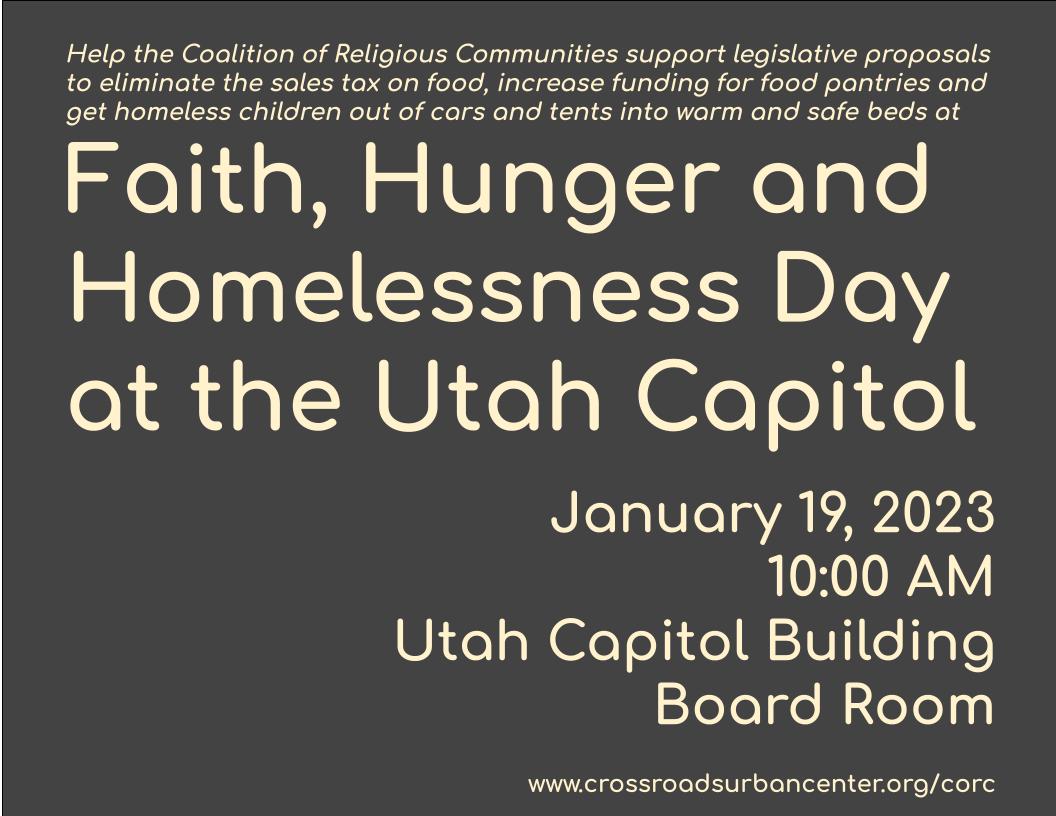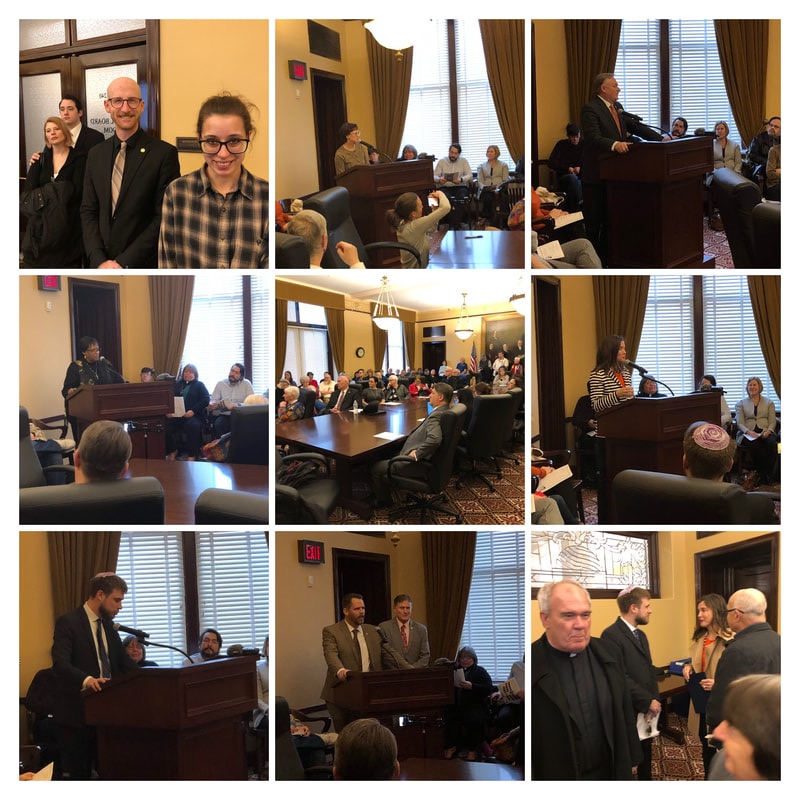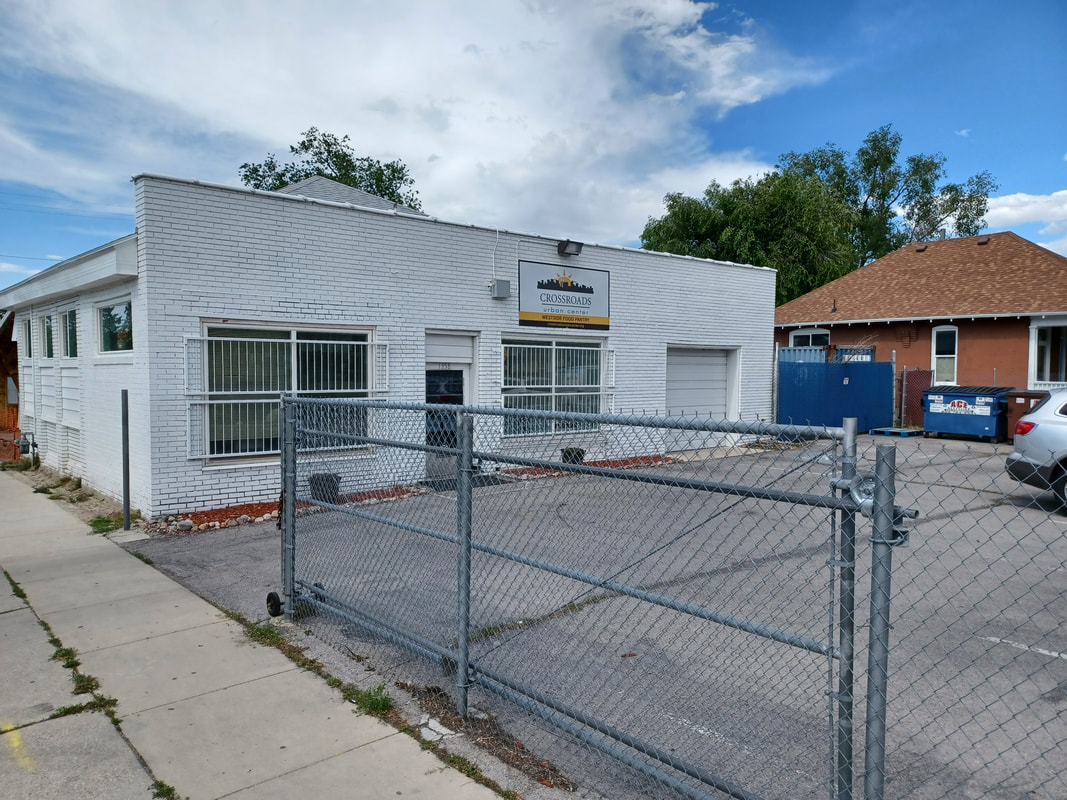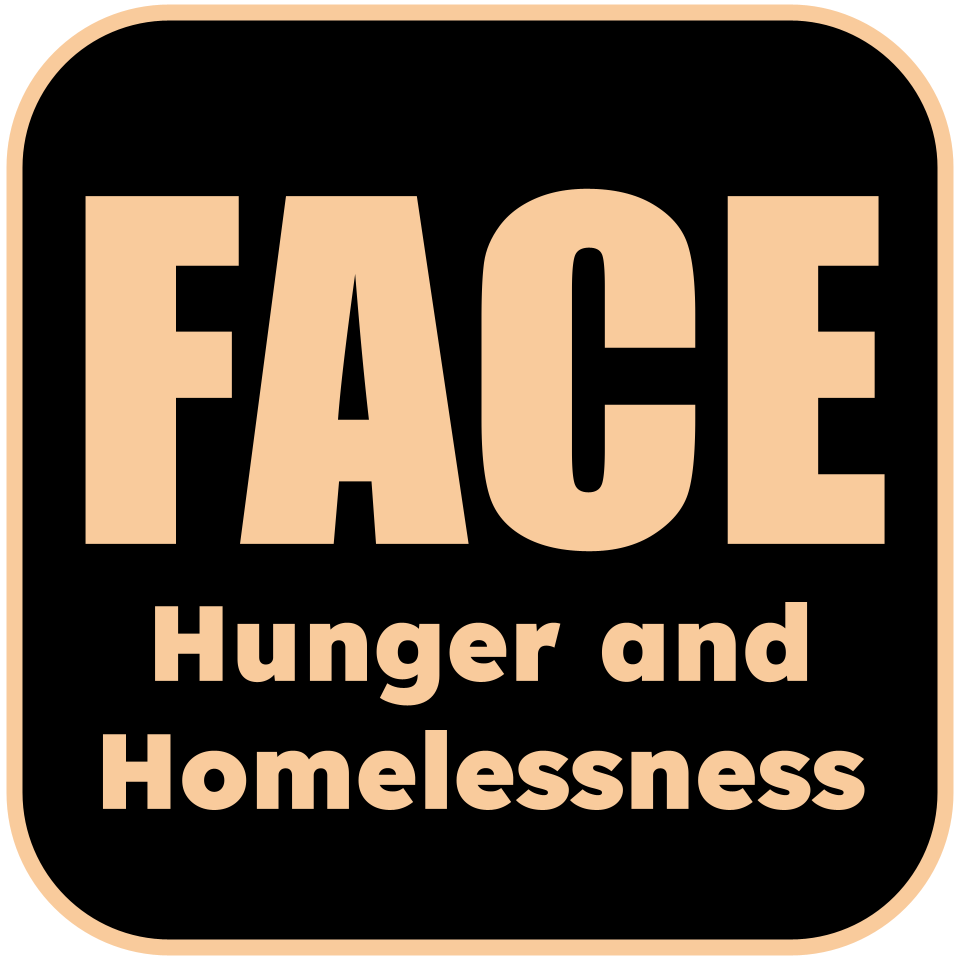| During its 45 day formal session the Utah Legislature will review hundreds of bills and pass a $28 billion budget. On the morning of the third day of this year's legislative session, Thursday, January 19, 2023, the Coalition of Religious Communities will be hosting an event called Faith, Hunger & Homelessness Day at the Utah Capitol to draw attention to proposals to reduce hunger and homelessness in Utah. Below are the Agenda for this gathering and a list of policies that will be discussed. Faith, Hunger & Homelessness Day at the Utah Capitol January 19, 2023 Utah Capitol Building, Board Room Agenda I. Welcome and Introductions, by Bill Tibbitts 10:00 AM II. Keynote Speech by Rev. Vinnetta Golphin Wilkerson of Granger 10:05 AM Community Christian Church III. Key facts about child homelessness presented Service Leadership 10:15 AM students from Salt Lake Center for Science Education IV. Discussion about proposals to produce housing to reduce 10:25 AM to reduce homelessness V. Presentation about results from survey about health and homelessness 10:35 AM by Applied Statistics students from BYU and their mentor, Dr. Alex Jensen Read more survey results here VI. Discussion about proposal to use Medicaid funding to improve case 10:45 AM management and access to healthcare services for people who have experienced homelessness VII. Reading of Isaiah Chapter 58 by Jacqueline Osherow 10:50 AM of Congregation Kol Ami VIII. Presentation on proposal to increase funding to support community 10:55 AM food pantries by Gina Cornia from Utahns Against Hunger IX. Presentation on bills to eliminate the state portion of the sales tax 11:05 AM on food presented by Representative Rosemary Lesser and Representative Judy Weeks Rohner X. Thanks to all participants and instructions on how to share policy 11:15 AM ideas with legislators | Participating Congregations
|
Faith, Hunger & Homelessness Day
Policy Priorities
Hunger
Homelessness
Policy Priorities
Hunger
- Support for Food Pantries: As nutrition assistance programs created during the pandemic expire, the number of people seeking help from community food pantries has increased dramatically in the past year. The state can help food pantries respond to this surge in need by supporting Governor Cox’s proposal to provide an additional $800,000 in assistance to community food pantries.
- Eliminating the Sales Tax on Food: Representative Rosemary Lesser (HB 172) and Representative Judy Weeks Rohner (HB 101) both are sponsoring bills that would eliminate the state portion of the sales tax on food. The sales tax on food disproportionately impacts low-income families, particularly during times of surging inflation for food. These bills, if passed, would help families avoid being taxed into poverty and homelessness.
Homelessness
- Funding to produce housing to reduce homelessness and housing instability: Governor Cox has proposed that the budget for the coming fiscal year include: a) $100 million in one-time funds to produce 2,000 units of housing, and b) $19 million in ongoing funding for tax credits and housing trust fund funding, plus $5 million in one-time funds to the housing trust fund, to produce 1,000 new units of affordable housing over the next ten years.
- An additional $30 million in one-time fund for projects to eliminate unsheltered homelessness for families with children: The total number of people needing emergency shelter services in Utah increased by 14 percent in 2022. For families with children the increase was 33 percent. This is why, for the first time in over twenty years, families with children were turned away from the family shelter in Midvale during the months of September, October and November of last year because there were not enough beds to meet the need. $30 million would help purchase a motel to convert into a second family shelter and to purchase land that can be dedicated to produce mixed income housing developments that include permanent supportive housing for families with children headed by parents with disabling conditions that have been homeless for six or more months.
- Expanding Utah’s federal waiver to provide case management services to people experiencing homelessness: Utah recently launched an initiative to use Medicaid funds to expand housing related case management services to people who have experienced homelessness. Unfortunately, the current program is so limited that only ten percent of the people living in permanent supportive housing are eligible to receive these services through Medicaid. To address this problem the Legislature should add this sentence to an appropriate bill, "The Department of Health is authorized to request permission from the federal government to expand its Medicaid waiver for the inclusion of housing tenancy services to all persons with a history of chronic homelessness, all households that are eligible for participation in the Temporary Aid to Needy Families Program, and all persons who have stayed in a homeless shelter for more than 30 days in the past two years."









